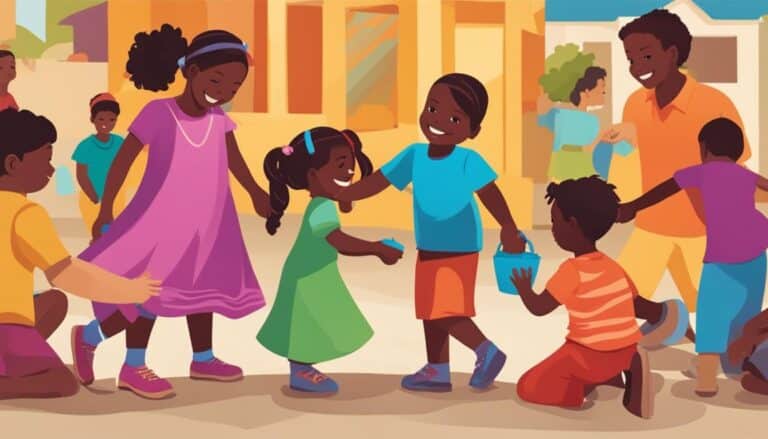Exploring Career Paths in Child Development: What You Need to Know
Are you passionate about shaping young minds and futures? Do you have a keen interest in child development? If so, a career in child development may be the perfect fit for you. In this article, I will guide you through the exciting world of child development careers and the various paths you can take to make a meaningful impact on the lives of children and their families.
Key Takeaways
- Child development careers offer a wide range of opportunities in fields such as early childhood education, child psychology, and pediatric healthcare.
- Most child development positions require at least a bachelor’s degree in a related field.
- Skills, such as patience, empathy, and effective communication, are important for success in child development careers.
- The demand for child development professionals is expected to grow, driven by increased awareness of the importance of early childhood development.
- Community engagement plays a crucial role in child development careers by addressing important social issues and fostering inclusivity.
Career Opportunities in Child Development
The field of child development offers a wide range of career opportunities for professionals. Child development professionals can work in various settings, such as schools, daycare centers, hospitals, and research institutions. Whether you have a passion for early childhood education, child psychology, pediatric nursing, pediatric occupational therapy, or child welfare, there are abundant avenues to pursue.
To thrive in the child development industry, educational and training requirements vary depending on the specific career path. However, most positions require at least a bachelor’s degree in a related field. For example, a career in early childhood education often demands a degree in early childhood education or a related field. Similarly, child psychologists need a graduate degree in psychology or child development to practice professionally. Pediatric nursing and pediatric occupational therapy require specialized training and certification beyond a bachelor’s degree.
Skills and Qualities for Success in Child Development Careers
Alongside the necessary education and training, certain skills and qualities are crucial for success in child development careers:
- Patience: Working with children can be challenging at times, and patience is essential for understanding their needs and supporting their growth.
- Empathy: Being able to understand and relate to children’s emotions and experiences is vital in providing effective care and guidance.
- Communication Skills: Effective communication with children, parents, and colleagues is crucial for building relationships, sharing information, and collaborating in a team.
- Ability to Work with Children and Their Families: Child development professionals often collaborate closely with families, so the ability to foster positive relationships with both children and their parents is paramount.
Given the increasing awareness of the importance of early childhood development, the demand for child development professionals is expected to grow significantly in the coming years. This growth is fueled by a greater emphasis placed on providing quality early childhood education and the need for qualified professionals to support children’s growth and development.

| Career Path | Education and Training Requirements |
|---|---|
| Early Childhood Education | Bachelor’s degree in early childhood education or related field |
| Child Psychology | Graduate degree in psychology or child development |
| Pediatric Nursing | Bachelor’s degree in nursing and specialized pediatric nursing training |
| Pediatric Occupational Therapy | Bachelor’s degree in occupational therapy and specialized pediatric occupational therapy training |
| Child Welfare | Bachelor’s degree in social work or related field |
The Impact of Community Engagement in Child Development Careers
Community engagement plays a crucial role in child development careers by fostering authentic relationships and ensuring that communities feel represented and valued. By actively involving community members in child development projects, professionals can address important issues such as racial disparity, cultural diversity, and gender identity.
One notable example of community engagement projects in child development is “Wisconsin in Black & White.” This initiative aims to spark public conversations, raise awareness, and promote understanding of racial disparities in child development. Additionally, “The Wisconsin Muslim Project” and “Wisconsin Pride” focus on creating inclusive spaces and fostering dialogue around cultural diversity and gender identity.
The commitment to community engagement is exemplified by the Community Engagement team at PBS Wisconsin. They collaborate with local organizations, host events, and facilitate discussions to promote community engagement in child development. Through these efforts, professionals in child development careers can create a positive impact on the lives of children and families while addressing important social issues.
FAQ
What are some career opportunities in child development?
Some career opportunities in child development include early childhood education, child psychology, pediatric nursing, pediatric occupational therapy, and child welfare.
What education and training do child development professionals need?
The education and training requirements for child development professionals vary depending on the specific career path, but most positions require at least a bachelor’s degree in a related field.
What skills are important for success in child development careers?
Skills that are important for success in child development careers include patience, empathy, communication skills, and the ability to work with children and their families.
Is there a demand for child development professionals?
Yes, the demand for child development professionals is expected to grow in the coming years, driven by increased awareness of the importance of early childhood development and the need for qualified professionals to support children’s growth and development.
What is the impact of community engagement in child development careers?
Community engagement plays a crucial role in child development careers by fostering authentic relationships and ensuring that communities feel represented and valued.






